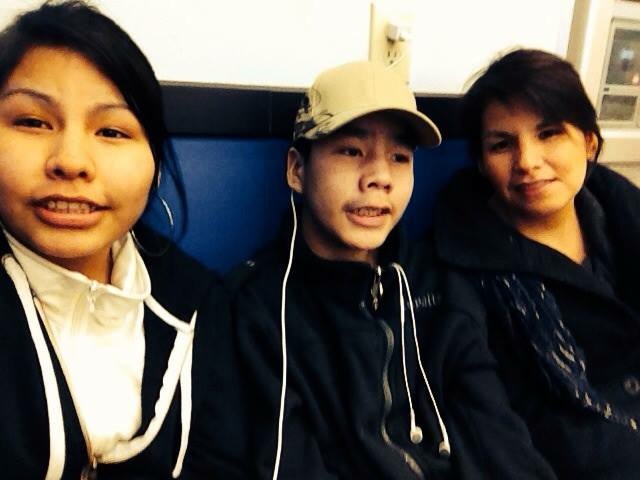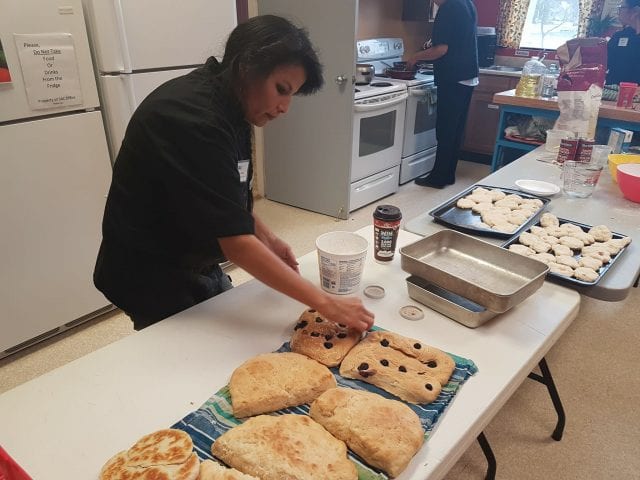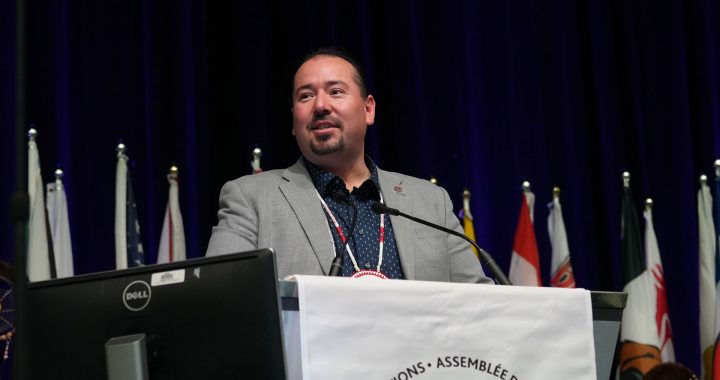Karyn PuglieseAPTN NewsEight years ago a family tragedy changed Helena Wood’s life forever, and set the course for a nearly decade-long journey of healing and recovery.On Feb. 26, 2010 Helena’s 15-year-old daughter Cassandra Wood died by suicide in their home community of St. Theresa Point. Her body was found a day later in a garage near the community’s high school. Helena believes witnessing years of domestic violence in the home was too much for Cassandra.“I’m not going to go through this again. I’m not going to lose another daughter because of him,” she told APTN News. “He doesn’t matter to me. What matters is my kid’s future. Giving them the best life I could possibly give them.In August 2010, six months after Cassandra’s death, Helena fled to Winnipeg with her kids. She called a local shelter asking for help getting the family. St. Theresa Point is a remote community in northern Manitoba. During the summer it is only accessible by plane and in the winter people can drive in and out via a winter road. The shelter paid for Helena and her kids to be flown to Winnipeg.She eventually settled in community of Steinbach located 58 km southeast of Winnipeg.It is here where she had to face some harsh realities when it came to her daughter.“I regret not knowing her. Even though she was reaching out to me I turned her away because of the domestic violence,” she said from her home in Steinbach.“I was too much concentrating on my abuse. Trying to survive every day.”Helena and Cassandra’s father began dating while they were in high school. Helena became pregnant with Cassandra at the age of 16. She married Cassandra’s father when she was 18. The violence started early on in their relationship. APTN has decided not to publish his name at Helena’s request.APTN obtained a copy of a special investigative report done by Manitoba’s Children’s Advocate Office outlining events leading up to and after Cassandra’s death.According to the report Island Lake First Nations Family Services (ILFNFS) first intervened in December 2008 when Cassandra told local health workers she didn’t want to go home because of the violence. Helena and Cassandra’s father met with ILFNFS, health services and justice representatives. They were concerned marital problems were affecting the children.The agency was supposed to follow up the next week but there is no documentation indicating that meeting took place, according to the report.In September 2009 Cassandra went to live with her maternal grandparents because of the violence. She remained there off and on until her death.With the abuse came the drinking. Helena use alcohol to cope with the abuse. She says it helped numb her feelings. That dependency followed her, but this time she was drinking to deal with Cassandra’s death.Cassandra’s siblings, Jewel and Austin Wood, were trying cope with their sister’s death. Their relationship with Helena began to deteriorate because of Helena’s addictions. Helena contacted child and family services hoping to get counseling for her kids and herself. The agency responded by apprehending the kids. Jewel decided to move back to St. Theresa Point to live with her father. Austin was placed in another home.For Helena that was her rock bottom. She worked tirelessly to get her kids back. She wrote three letters to the agency pleading for help to kick her addictions. In one she wrote, “I feel like I’ve been mistreated and victimized by the system again. And yet that was the whole point I came down here to get the proper help I need for me and my children. Instead just got ignored and being misunderstood.”After submitting the letters to the agency she was assigned a new caseworker. She was finally told the kids would be returned if she got clean.“I went to the emergency. I wanted to quit on my own but I knew I couldn’t because of my body. Then I went to the crisis stabilization unit over there,” said Helena.Doctors told her symptoms from withdrawal could be fatal if she quit cold turkey.It’s been eight years since Helena left the community. She has now been sober for nearly two years. She credits her sobriety to the support of her parents, a strong group of friends and rediscovering her faith.“I go to church and I go to a bible study group. I call them my family but they’re my friends. That’s where my help is and that’s how I finally healed,” she said.Both Jewel and Austin have since aged out of the child welfare system. Two years ago Jewel gave birth to Helena’s first grandchild – a baby boy named Anthony. Last summer Jewel and Anthony moved to Steinbach to live with Helena. Shortly after Austin followed.

6 thoughts on “Helena Wood’s story: A journey to healing”
Comments are closed.











Great story of inspiration to overcome addictions love it and the work with kids giving them some culture and belonging. Breaks my heart all these lost kids.
So proud of you! Don’t ever quit fighting for the good life!
Great story of inspiration to overcome addictions love it and the work with kids giving them some culture and belonging. Breaks my heart all these lost kids.
So proud of you! Don’t ever quit fighting for the good life!
Keep going strong Helena. You are not alone. Be brave and Be You. Youre definatley an inspiration. and please do not forget that.
Keep going strong Helena. You are not alone. Be brave and Be You. Youre definatley an inspiration. and please do not forget that.